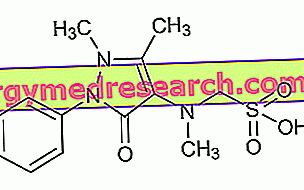Definition
Polio is an acute and highly contagious viral disease, typical of the pediatric age, which affects the central nervous system: it is a partial or total infantile paralysis, which can lead to irreversible neurological deficits.
Causes
Polio is caused by a virus: precisely, the infectious agent is a poliovirus (genus: enterovirus, family: picornavirus ) transmitted by direct contact between people, via the fecal-oral route (intake of contaminated food / liquids) or by contact with infected mucus, saliva or phlegm.
Symptoms
The most serious injury caused by poliomyelitis is certainly of a nervous nature: the virus, by attacking the nervous system, destroys some neurons, causing damage.
- Inapparent Poliomyelitis: asymptomatic (90-95%)
- Non-paralytic poliomyelitis: typically flu-like symptoms (alteration of appetite, diffuse weakness, abdominal pain, emesis, fever, tingling, sore throat, back and head, nausea, muscle stiffness, constipation)
- Paralytic poliomyelitis: muscular atrophy, meningitis, flaccid paralysis, flu symptoms, death by cardiorespiratory arrest.
Information on Poliomyelitis - Poliomyelitis Drugs is not intended to replace the direct relationship between health professional and patient. Always consult your doctor and / or specialist before taking Poliomyelitis - Poliomyelitis Drugs.
drugs
In the case of missed vaccination (mandatory in Italy since 1966) it is possible to contract polio, even if the disease - for the vast majority of cases - fortunately runs asymptomatically.
The goal of drug treatment is undoubtedly to control the symptoms during the course of polio infection; in the event of gravity it is possible to help the patient's breathing (mechanical ventilation).
There are no specific pharmacological treatments, but only therapeutic aids useful for improving the patient's condition: in addition to the administration of antibiotics, painkillers and prokinetics, the patient suffering from a severe form of poliomyelitis must remain in bed, preferentially opting for a suitable mattress, suitable to relieve back pain. Even wraps with warm cloths are a good help to reduce muscle spasms.
Antibiotics : for the treatment of urinary infections associated with poliomyelitis. Below is a list of the most widely used antibiotic drugs in therapy:
The dosage and duration of therapy are not reported, given that only the doctor can accurately prescribe the aforementioned indications, based on the symptoms derived from poliomyelitis.
- Azithromycin (eg Azithromycin, Zitrobiotic, Rezan, Azitrocin), macrolide antibiotic indicated for bacterial, viral or fungal infections of the urinary tract;
- Clarithromycin (eg Biaxin, Macladin, Klacid, Soriclar, Veclam): another exponent of macrolides, also indicated for urinary tract infections in the context of poliomyelitis
- Ertapenem (eg Invanz) antibiotic (carbapenem class) indicated for the treatment of abdominal, urinary and acquired pneumonia infections. Although it is not the drug of choice, Ertapenem is still used for the treatment of poliomyelitis associated with bacterial infections.
Drugs for urinary retention:
- Bethanecol (eg Myocholine) is a cholinergic agonist used - albeit rarely - to empty the bladder, as well as having a mild prokinetic effect (patients with poliomyelitis tend to complain of constipation). Generally, it is taken orally at a dosage of 10-50 mg three times a day: the method of administration must be respected according to the doctor's instructions.
Painkillers and antispasmodics to reduce headaches, joint pains and spasms:
Narcotics are generally not recommended as they increase the risk of respiratory failure
- Diclofenac (eg. Fastum Painkiller, Dicloreum): take 50 mg of drug orally 3 times a day (tablets); in some patients, an initial dose of 100 mg is required, and then changed to 50 mg. After the first day, the total daily dose should not exceed 150 mg (indicative dosage)
- Ibuprofen (eg. Noan, Vatran, Pedea): for moderate pain, it is recommended to administer 200-400 mg of the drug every 4-6 hours as needed. The active ingredient can also be administered intravenously (400-800 mg for 30 minutes every 6 hours, as needed: indicative dosage).
- SCOPOLAMINE butyl bromide (eg Buscopan, Addofix, Erion): the administration of this antispastic drug is indicated to relax the muscles of the genito-urinary tract. Generally, it is recommended to take 1-2 tablets of 10 mg per day (for adults and children over 14 years).
Prokinetics : constipation, in the context of polio infection, should not be underestimated. In this sense, prokinetics assist in intestinal activity:
- Metoclopramide (eg. Delipramil, Plasil, Pramidin): indicated for disorders of the gastro-intestinal tract, nausea and vomiting. Generally, the drug is administered at a dose of 10.5 mg three times a day, after meals.
- Bisacodyl (eg. Dulcolax): determines a good laxative effect, therefore it is indicated in case of constipation also in the context of poliomyelitis. It is generally recommended to take 2 tablets per day of 5 mg, as ordered by your doctor.
Poliomyelitis: vaccination
Vaccination is fundamental; for polio there are two vaccines:
- Inactivated vaccine: recommended for routine prophylaxis vaccination. Administered by injection, in three doses (1 initial + 2 boosters), the vaccine contains type 1-2-3 strains of human poliovirus. Additional booster administrations are recommended only for those subjects potentially at risk of contracting the virus, or to tourists before embarking on a journey in places with a high polio incidence.
- Oral vaccine: indicated in case of epidemics, especially as a completion to a cycle of injected vaccines. The combination of the two vaccines significantly reduces the risk of paralytic poliomyelitis.
Examples of polio vaccines available:
- Infanrix Hexa (vaccine for poliomyelitis, tetanus, diphtheria, pertussis, hepatitis B, and diseases caused by the bacterium Haemophilus influenzae)
- Infanrix Penta (vaccine for poliomyelitis, diphtheria, tetanus, pertussis and apatite B)
- Poliovax-in imsc 1 f 1 ml (inactivated poliomyelitis vaccine)
- Imovax polio 1sir. 0.5ml (inactivated poliomyelitis vaccine)



